The Digital Belt and Road Science Plan was made public at the opening ceremony of the Second Conference of the Digital Belt and Road (DBAR 2017) and the Third International Conference on Remote Sensing Applications in Tropical and Subtropical Areas (RSATSA 2017) held recently at the Chinese University of Hong Kong (CUHK). The conferences were co-organised by the DBAR Programme and CUHK, and hosted by the Institute of Space and Earth Information Science (ISEIS), CUHK.
Chaired by Prof. LIN Hui, Director of ISEIS, CUHK, and with a welcome from Prof. Benjamin WAH, Provost of CUHK, the opening ceremony featured a keynote speech entitled “Big Earth Data for Belt and Road Development” from Prof. GUO Huadong, Academician of the Chinese Academy of Sciences, Chair of DBAR Programme and Chair of International Steering Committee of RSATSA 2017. Prof. Valery BONDUR, Vice-President of the Russian Academy of Sciences and a foreign academician of the Chinese Academy of Sciences, also addressed the ceremony, saying that space-to-Earth observation technology has become recognised as a means of modern social governance by the international community and that, as one of the most active space powers in the world, China has made outstanding contributions to the development of Earth observation.
The DBAR Science Plan brought together the discussions and compilation of more than 300 experts from 26 countries and over 10 international organisations. The plan defines the vision, goals, and scientific agenda of DBAR and sets the stage for the implementation of DBAR. DBAR is an international scientific programme that uses big Earth data to serve sustainable development in the Belt and Road initiative. This 10-year science project is expected to promote the application of big Earth data to the design and planning of regional development, environmental protection and resource management activities by 2025, within the framework of the Belt and Road Initiative.
The conference approved the establishment of DBAR's first eight DBAR International Centers of Excellence (ICoE) in Russia, Pakistan, the United States, Italy, Morocco, Zambia, Thailand and Finland. These ICoE will carry out research in infrastructure improvements, environmental protection, disaster risk control, water resources management, urban development, food safety, economic growth in coastal areas, management of natural and cultural heritage, and sustainable development in mountain and cold regions and the Arctic. This will form a scientific and technological cooperation and an open base with mutual research, complementary advantages and results which benefit all. With ICoE as the fulcrum, an international cooperation network with regional advantages and research features that radiate through the surrounding areas will be formed.
The three-day conference aimed to promote the sustainable development of the “Belt and Road” regions, serve national and international strategy, promote the applications of big Earth data in interdisciplinary fields, and establish communication and exchange among scientists and policy makers to promote the implementation of the DBAR scientific agenda. More than 200 scholars attended the conference from over 20 countries and international organisations including mainland China, Australia, Canada, Germany, Greece, Thailand, Indonesia, Laos, Malaysia, Sri Lanka, Mongolia, Myanmar, Pakistan, Morocco, the Netherlands, the United Kingdom, the United States, Russia, Kazakhstan, Italy and the European Union.
At the closing ceremony, the conference also announced that the Third DBAR will be held in Venice, Italy. The Fourth RSATSA will be held in Hanoi, Vietnam. In addition, 12 members of the International Council of Science (ICSU) who attended the conference visited ISEIS and discussed research and teaching support for the Belt and Road Initiative with researchers from ISEIS.
Since the DBAR programme was officially launched in May 2016, ISEIS has actively participated in the programme. Prof. LIN Hui, Director of ISEIS, has been a member of the DBAR Scientific Committee and served as co-chair of the DBAR Coastal Zone Working Group (DBAR-COAST). Dr. ZHANG Hongsheng, a research assistant professor of ISEIS, is a member of DBAR-COAST.
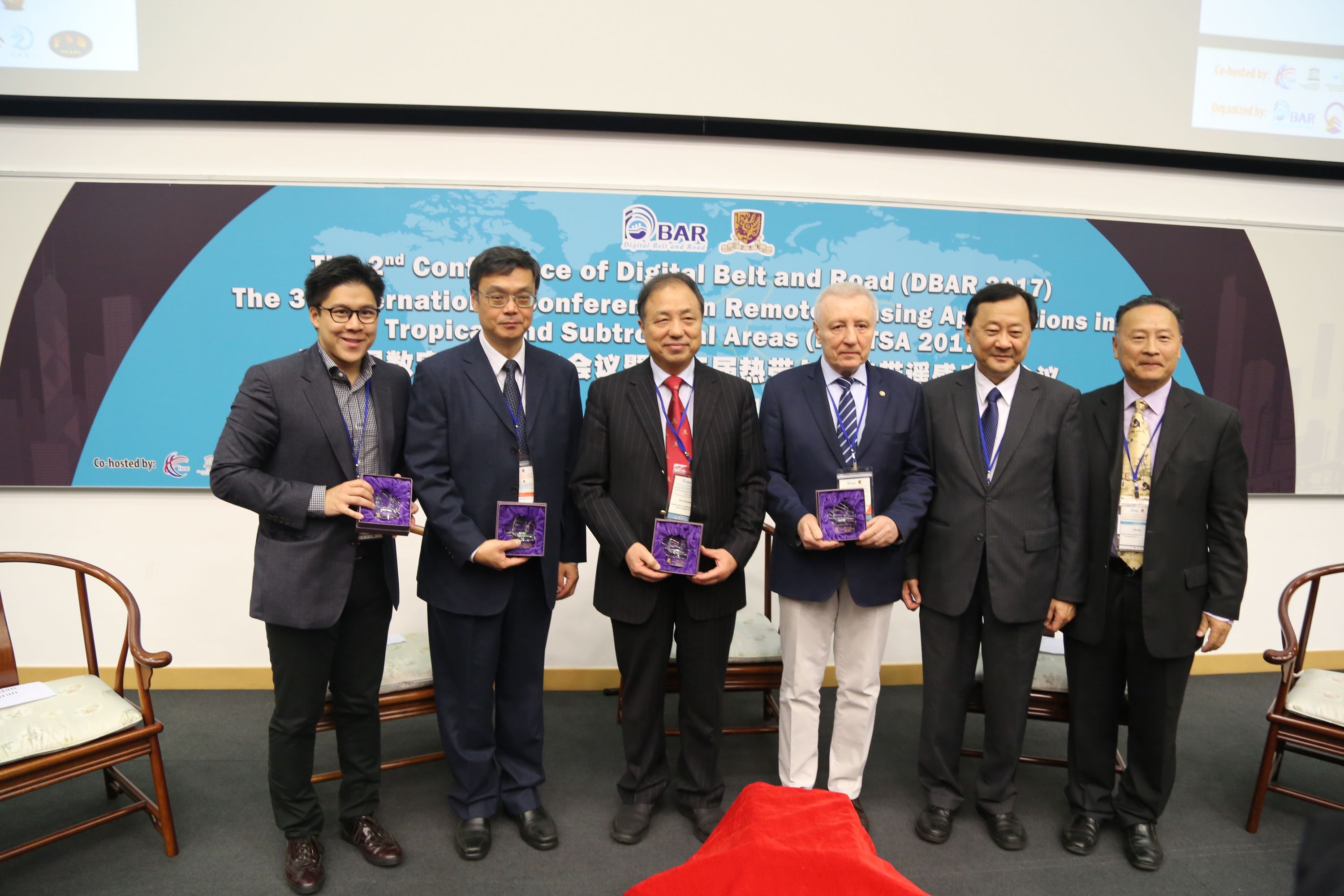
CUHK presents souvenirs to the experts and guests of the conference.
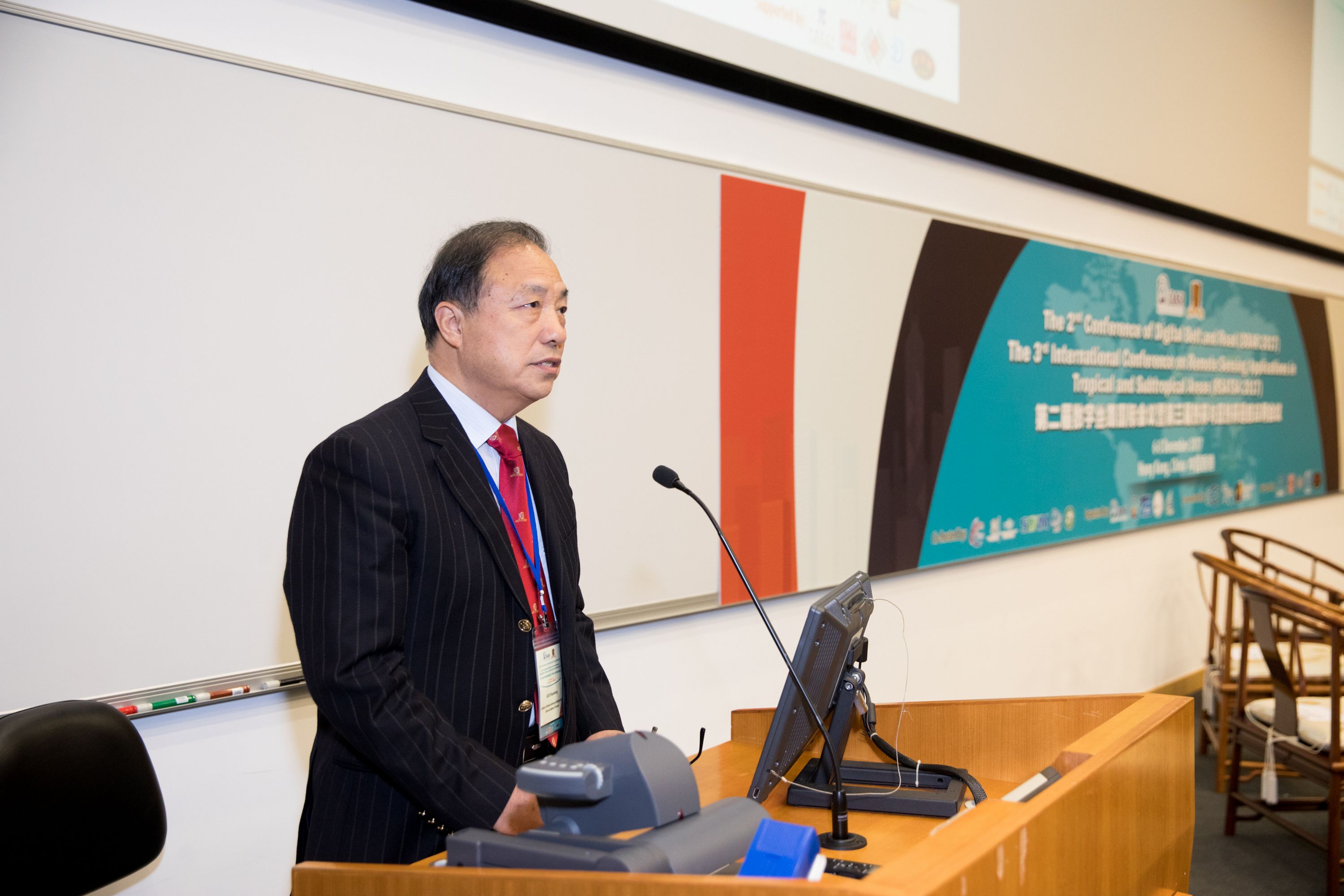
Academician GUO Huadong delivers a keynote speech on “Big Earth Data for Belt and Road Development”.
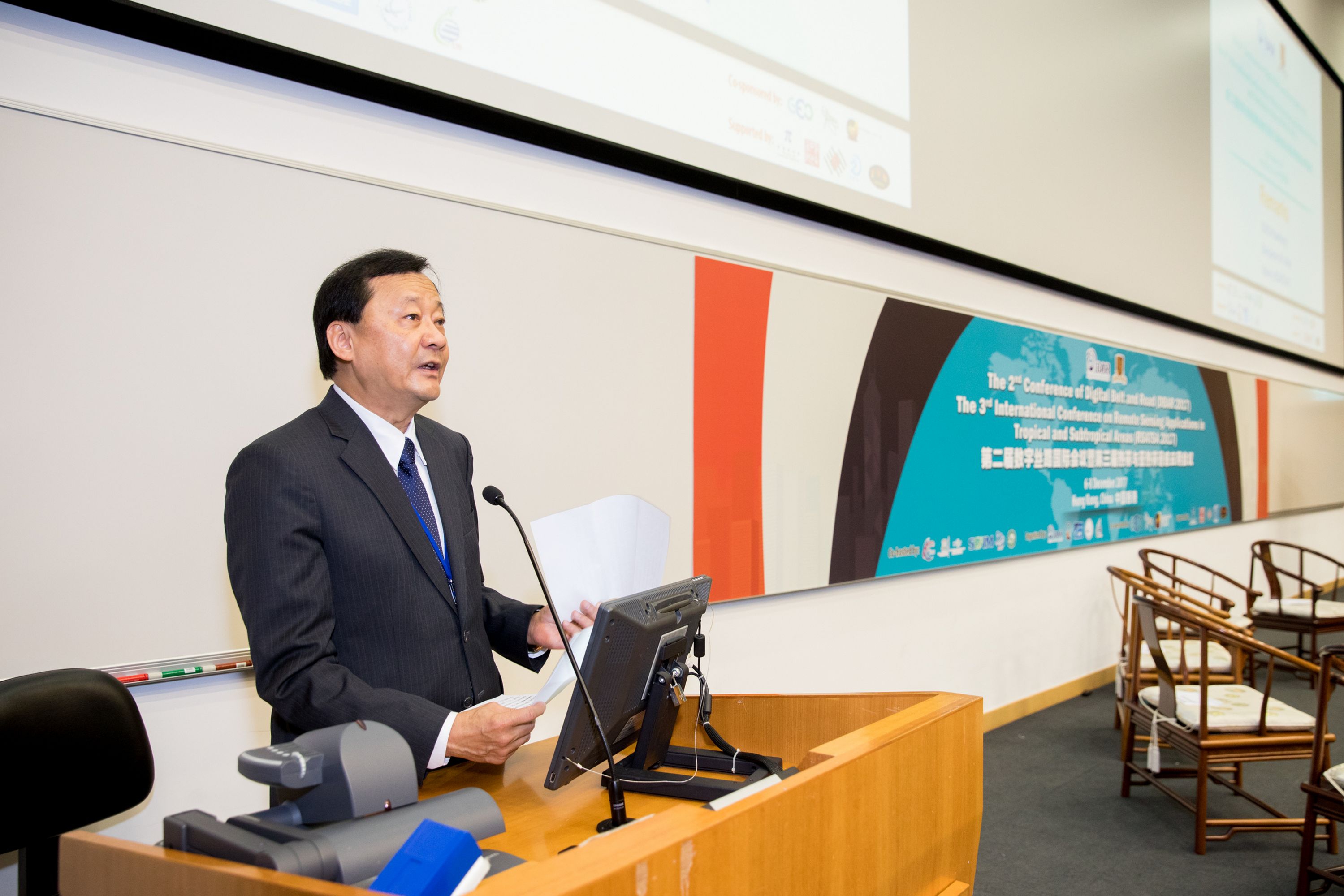
Prof. Benjamin WAH, Provost of CUHK delivers a welcome speech.
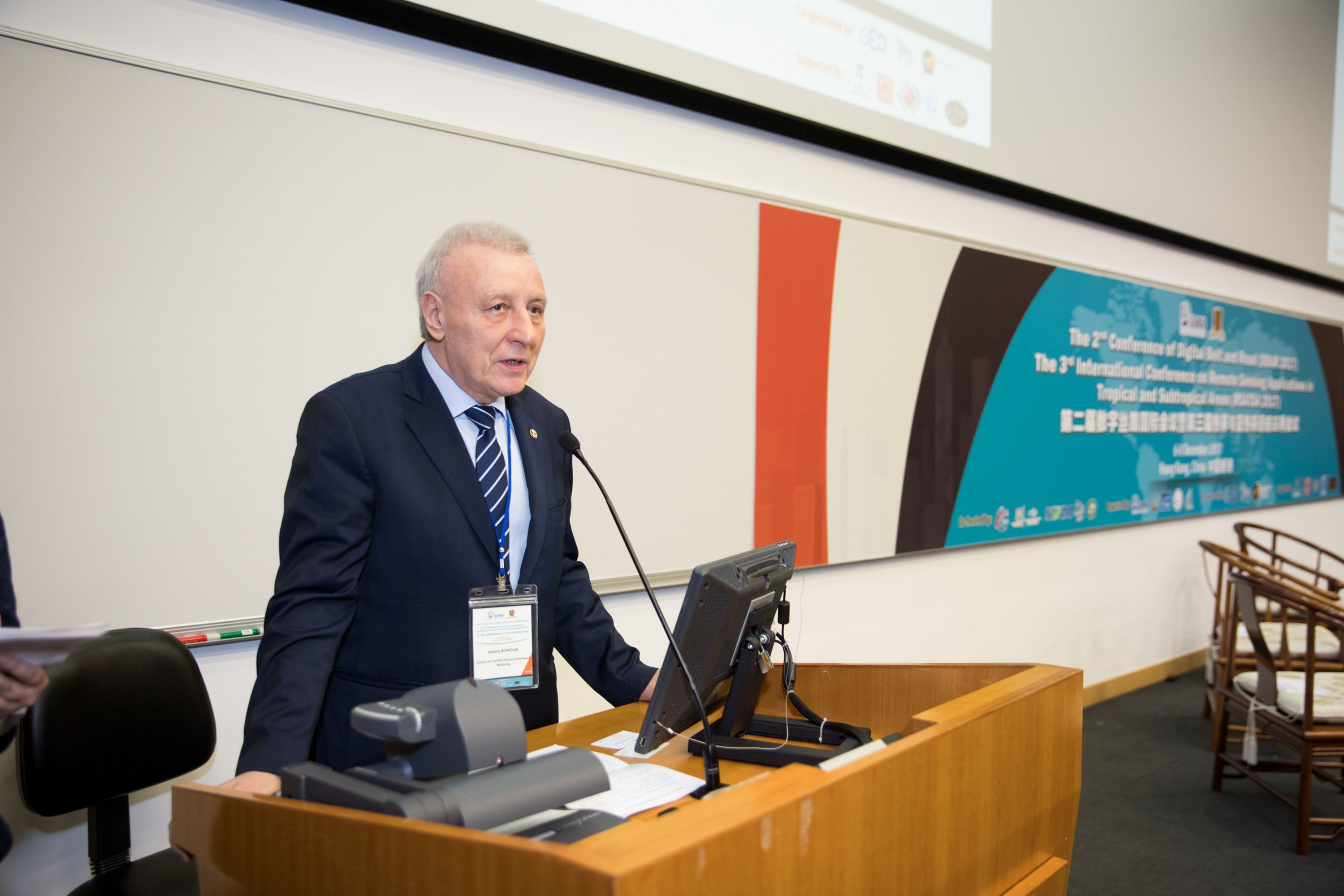
Prof. Valery BONDUR, Vice-President of the Russian Academy of Sciences and a foreign academician of the Chinese Academy of Sciences delivers a speech.
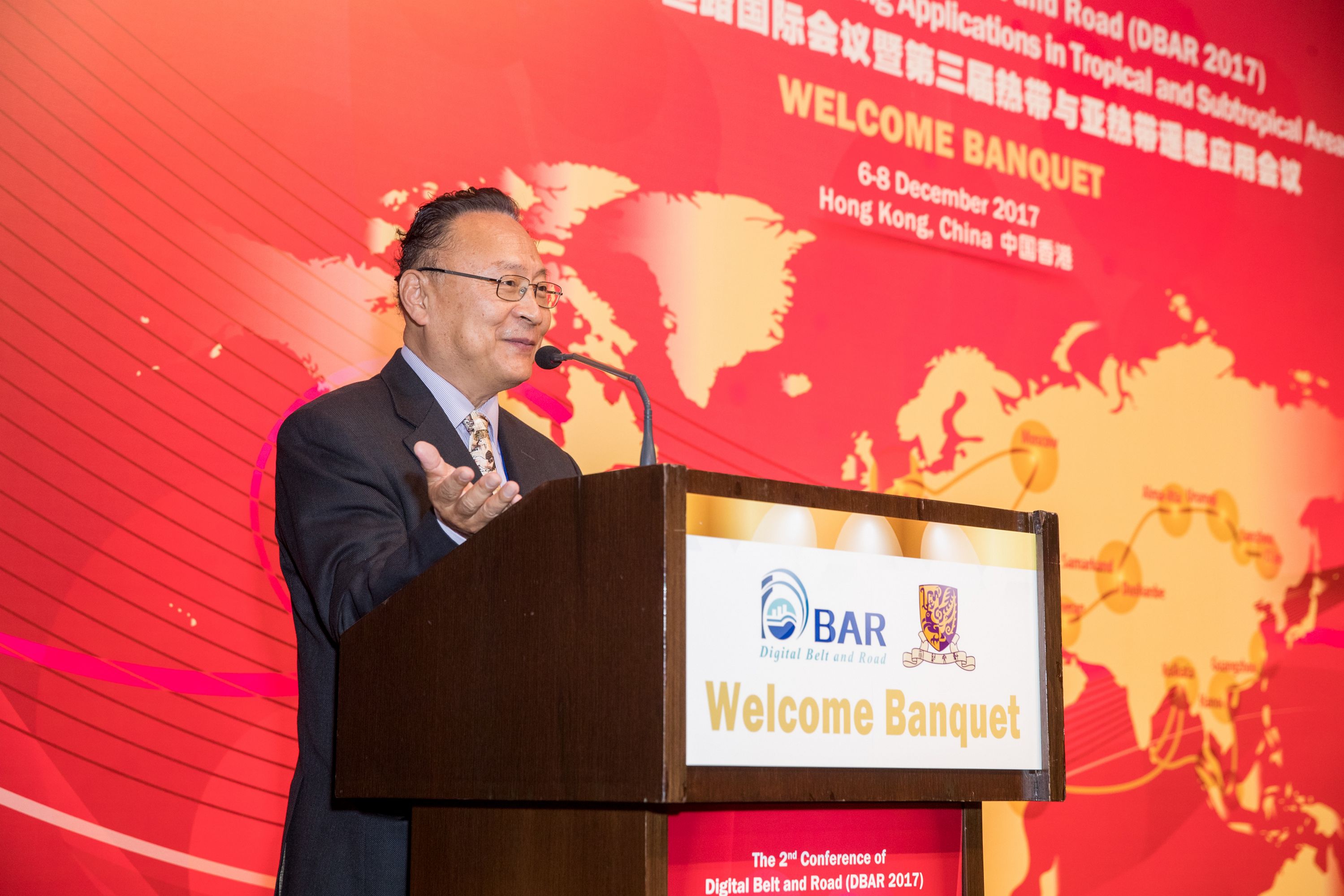
Prof. LIN Hui, Director of ISEIS.
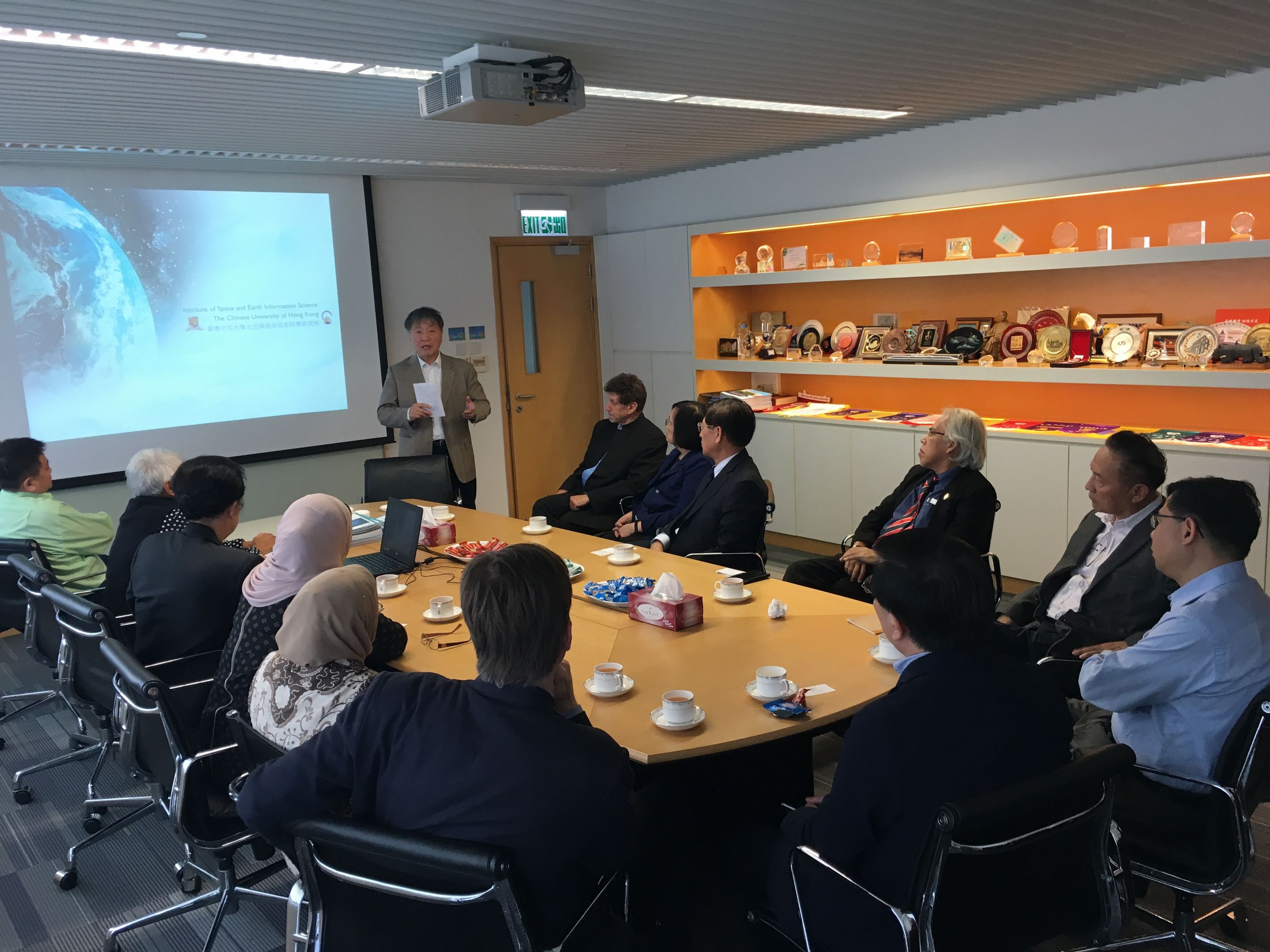
Delegates of the International Science Council visit ISEIS, CUHK.
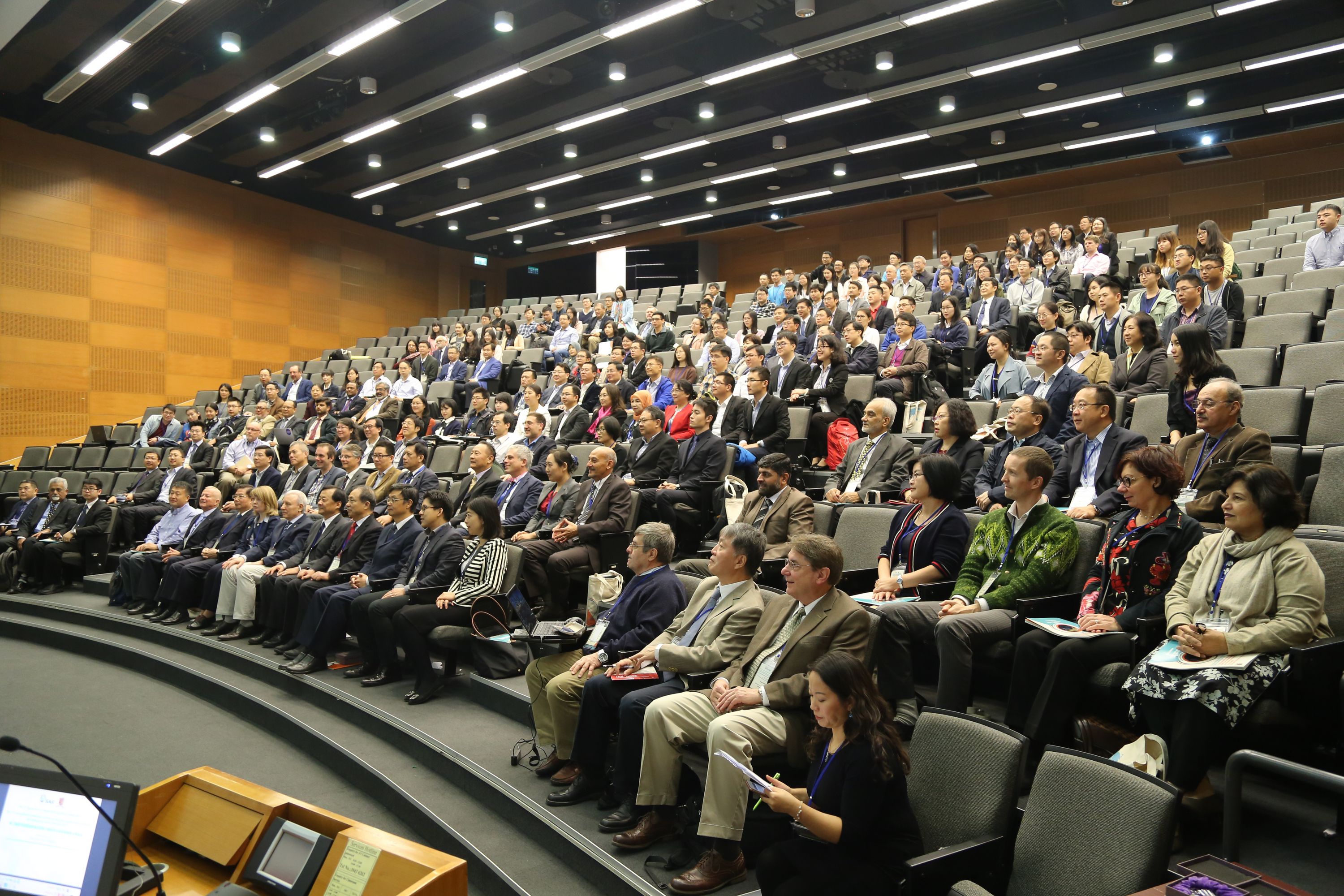
More than 200 scholars from over 20 countries and international organizations attend the conference.